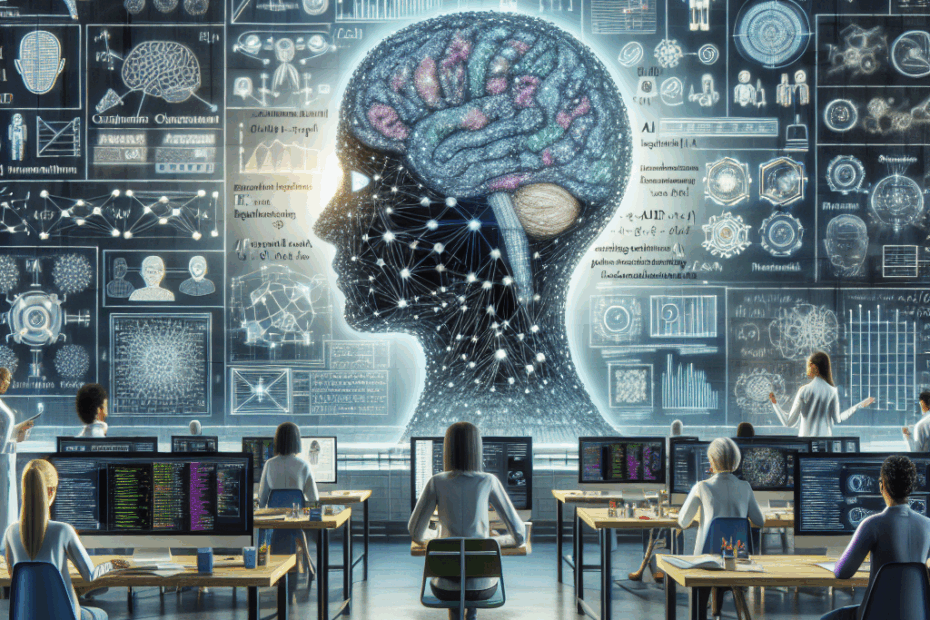Hey Everyone! Exciting News About ChatGPT!
Hi, I’m John, and I’m here to break down the latest AI news for you in a way that’s easy to understand. Today, we’re talking about something pretty cool from OpenAI, the company behind ChatGPT. They’ve made some changes to help you do deeper research using their AI, and it’s all about making information easier to get to and understand.
Lila, my awesome assistant, is here with me as always. She’s still learning about AI, so she’ll probably have some questions. Right, Lila?
“Yep! Ready for the scoop, John!”
Making AI Research Easier for Everyone
So, what’s the big deal? Well, OpenAI is trying to make it easier for everyone to use ChatGPT for research. They’re calling it “lightweight deep research.” Think of it like this: imagine having a super-smart assistant that can quickly read a bunch of articles and give you the most important information. That’s what this is all about!
What Does “Lightweight Deep Research” Actually Mean?
This new feature basically means that ChatGPT can now dive into research topics more effectively. It can quickly analyze lots of information and pull out the key points. This is super helpful if you need to understand a complex topic without spending hours reading tons of articles. It’s like having a personal research assistant who works super fast!
Lila, I bet you have a question about that, don’t you?
“I do! What does ‘analyze’ mean in this context, John?”
Good question, Lila! Analyzing in this context is like when you read something and then you understand what it means. ChatGPT does the same thing, but it’s much faster. It reads the information, figures out the main ideas, and then presents it to you in an easy-to-understand way. It’s like summarizing a book, but done automatically.
How This Helps You
So, how does this help you in the real world? Here are a few ways:
- Saving Time: No more spending hours sifting through articles. ChatGPT can summarize the information quickly.
- Understanding Complex Topics: AI can help you understand complex subjects like science, finance, or history by breaking them down into simpler terms.
- Finding Information Quickly: Need to know something fast? ChatGPT can find the relevant information in a snap.
It’s like having a shortcut to knowledge! Imagine you’re writing a school report and need to find out about the effects of climate change. Instead of reading dozens of websites, you can ask ChatGPT to give you the important points in an easy format.
The Key Benefits of OpenAI’s Update
The main advantage of this new development is increased accessibility. OpenAI has made advanced research tools available to a broader audience, not just AI experts. They want everyone to be able to use this powerful technology, and I think that’s a really good thing.
Essentially, OpenAI’s goal is to remove the barrier of entry, making it so anyone, regardless of their technical expertise, can utilize AI to conduct deep research, generate insights, and make informed decisions.
What does “accessibility” mean?
“John, you keep using the word accessibility. What does it really mean in this case?”
Great question, Lila! Accessibility means making something available and easy to use for everyone. In this case, it means that the new research tools are designed so that almost anyone can use them, even if they don’t know much about AI. It’s designed to be user-friendly.
How to Use It (in a Nutshell)
Unfortunately, the original article does not explain how to use the new feature, but I’d imagine it works something like this, based on the context of how other tools like ChatGPT work:
- You’d probably tell ChatGPT what you want to research. For example, “Can you give me a summary of the latest news about electric cars?”
- ChatGPT would then search for relevant information.
- It would analyze the information and give you a summary, or present the information in a clear way.
The exact details might vary, but the main idea is the same: you ask a question, and ChatGPT does the work to find the answer.
Why This Matters
This is a big step forward. It’s not just about making research easier; it’s about empowering people with information. Think about students, journalists, or anyone who needs to quickly understand a topic. This new feature will be really useful for them.
It is essentially democratizing information – making it easier for everyone to gain knowledge and understanding, regardless of their background or resources.
“So, does this mean that ChatGPT is replacing human researchers now, John?”
Not at all, Lila! It’s more like it’s becoming a really helpful tool that can *assist* researchers. It can do a lot of the groundwork, so human researchers can focus on things like interpreting the results and coming up with new ideas.
My Thoughts (John’s Perspective)
I think this is a really positive development. The more we can make AI accessible and useful, the better. I’m excited to see how people use this new feature to learn and discover new things. It’s a great example of how technology can help make the world a more informed place.
Lila’s Thoughts (Beginner’s Perspective)
Wow, that sounds really cool! It seems like AI is getting better and better at helping us understand things. I think it’ll be really useful for me when I’m trying to understand a new topic in school.
“So, I’m excited to give it a try!”
I’m right there with you, Lila!
This article is based on the following original source, summarized from the author’s perspective:
OpenAI Broadens Access: Lightweight Deep Research Empowers
Every ChatGPT User
